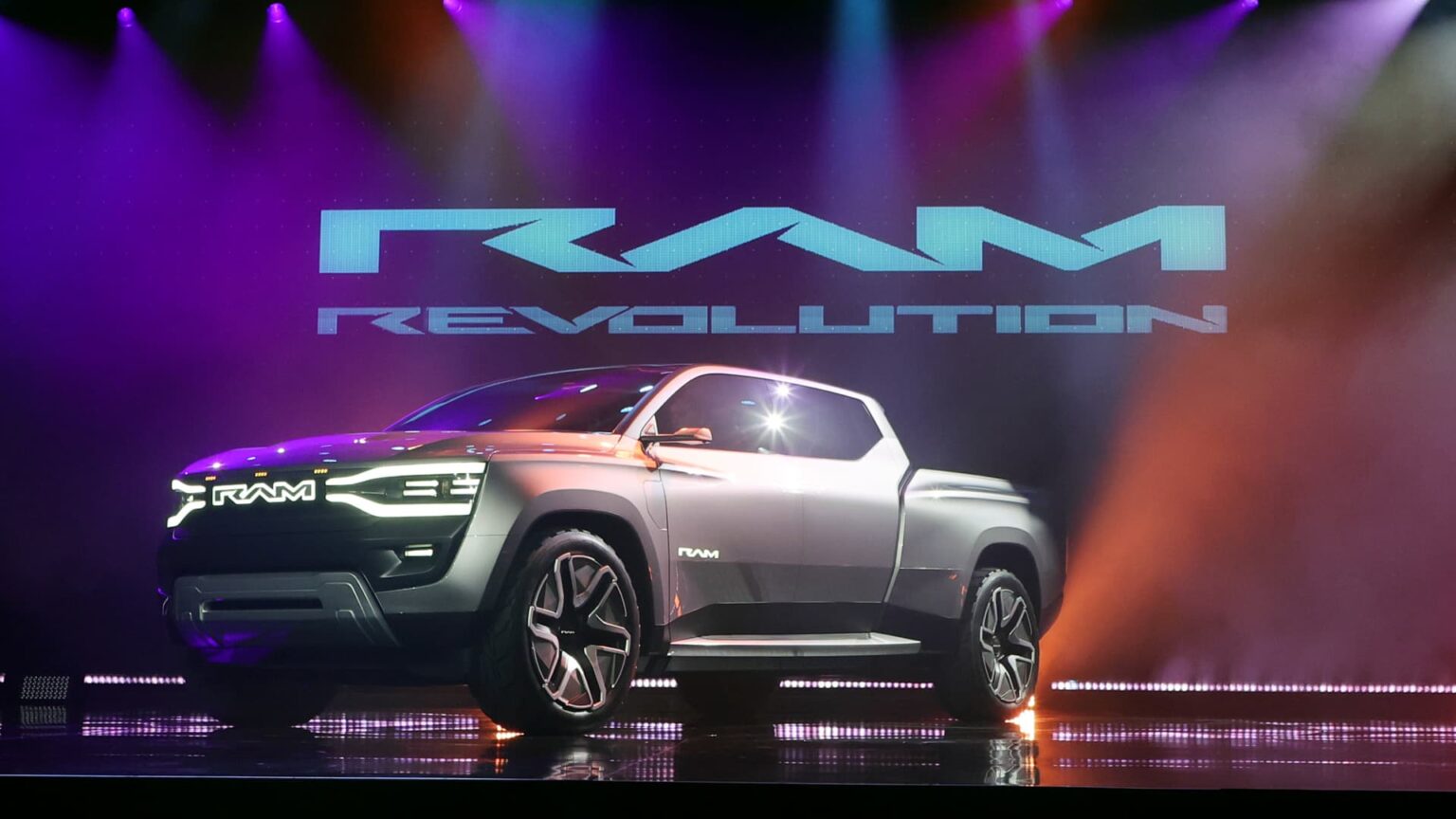Stellantis, the automotive giant behind the Ram brand, has announced a significant shift in its electric vehicle strategy, deciding to cancel the development of a full-size Ram 1500 electric pickup truck. This decision comes in light of diminishing demand for electric vehicles in North America. While Stellantis will discontinue the full-size battery electric vehicle (BEV), it is set to release an extended-range electric truck, now named the “Ram 1500 REV,” reflecting a strategic pivot in response to market conditions.
| Article Subheadings |
|---|
| 1) Stellantis Cancels Full-Size Electric Truck Plans |
| 2) Launching the Ram 1500 REV: A New Direction |
| 3) Leadership Changes Influence Strategy |
| 4) Industry Trends Impacting Electric Vehicle Adoption |
| 5) Future Outlook for Stellantis and Electric Vehicles |
Stellantis Cancels Full-Size Electric Truck Plans
Stellantis, a significant player in the automotive industry, has made the decision to terminate the plans for a full-size electric Ram 1500 pickup truck. This cancellation comes as the company observes a notable slowdown in the demand for full-size battery electric vehicles (BEVs) across the North American market. A spokesperson for Stellantis explained, “As demand for full-size battery electric trucks slows in North America, Stellantis is reassessing its product strategy and will discontinue development of a full-size BEV pickup.” Originally anticipated to hit the market by the end of 2024, the project had already faced delays, reflecting a growing concern about the viability of electric trucks in the current economic climate.
Launching the Ram 1500 REV: A New Direction
Rather than completely abandoning the electric truck market, Stellantis plans to introduce an extended-range electric vehicle named the “Ram 1500 REV.” Unlike a fully electric counterpart, this new model will feature an electric generator paired with a gas engine, which aims to cater to consumers looking for a combination of sustainability and traditional power. The decision to rename the vehicle from “Ramcharger” to “Ram 1500 REV” signals a strategic effort to better align with customer expectations. The expected release for this vehicle is set for next year, as Stellantis seeks to retain its foothold in the competitive truck segment.
Leadership Changes Influence Strategy
Recent leadership shifts within Stellantis are also shaping the company’s revised approach to its product lineup. Tim Kuniskis, the CEO of Ram, has returned from retirement with a mission to revitalize the brand amid growing challenges. Kuniskis’s plans focus on implementing aggressive strategies to reinvigorate sales and brand equity. Furthermore, new Stellantis CEO Antonio Filosa has expressed his intention to roll back certain initiatives established by former CEO Carlos Tavares, underscoring the need to make “the tough decisions needed to re-establish profitable growth and significantly improved results.”
Industry Trends Impacting Electric Vehicle Adoption
The broader automotive industry is grappling with slow adoption rates of electric vehicles, driven by various factors. Consumer hesitancy, infrastructure challenges, and shifting political landscapes play significant roles in this slowdown. Recent developments involving the Trump administration’s inclination to revoke numerous policies aimed at promoting electric vehicle usage and the cancellation of tax incentives have compounded these challenges. These factors contribute to a general atmosphere of uncertainty regarding the future of electric vehicle production in North America.
Future Outlook for Stellantis and Electric Vehicles
Despite the recent setbacks, the future remains uncertain but not without potential for Stellantis. The company’s pivot towards an extended-range electric model indicates a responsiveness to current market dynamics and consumer preferences. Stakeholders and industry analysts will be closely observing how Stellantis adjusts its strategy in the face of these evolving challenges. Maintaining competitive advantage amid the ongoing transition towards electric vehicles will require innovative approaches, adaptation, and effective communication with consumers.
| No. | Key Points |
|---|---|
| 1 | Stellantis cancels plans for a full-size Ram 1500 electric pickup due to slowing demand. |
| 2 | The introduction of the “Ram 1500 REV” signifies a shift towards an extended-range model. |
| 3 | Leadership changes at Stellantis are influencing its product strategy and market approach. |
| 4 | The automotive industry is facing challenges in electric vehicle adoption, influenced by policy changes. |
| 5 | The future remains uncertain, but Stellantis is responsive to market dynamics through strategic adjustments. |
Summary
In summary, Stellantis’s recent decisions signify a substantial reevaluation of its electric vehicle strategy, canceling the development of the Ram 1500 electric truck. This pivot reflects broader trends in the automotive industry, where demand for electric vehicles is not meeting expectations. The introduction of an extended-range model such as the Ram 1500 REV suggests that Stellantis aims to maintain relevance in a rapidly changing market, although challenges remain in terms of consumer acceptance and economic conditions.
Frequently Asked Questions
Question: Why was the full-size Ram 1500 electric truck project canceled?
The project was canceled due to a slowdown in demand for full-size battery electric vehicles in North America, prompting Stellantis to reassess its product strategy.
Question: What is the “Ram 1500 REV”?
The “Ram 1500 REV” is an extended-range electric pickup truck equipped with an electric generator and a gas engine, set for release next year.
Question: How are leadership changes impacting Stellantis’s strategies?
Leadership changes, particularly the arrival of new CEO Antonio Filosa, have led to a reassessment of previous initiatives, prompting a more aggressive approach to product strategy and market adaptation.


